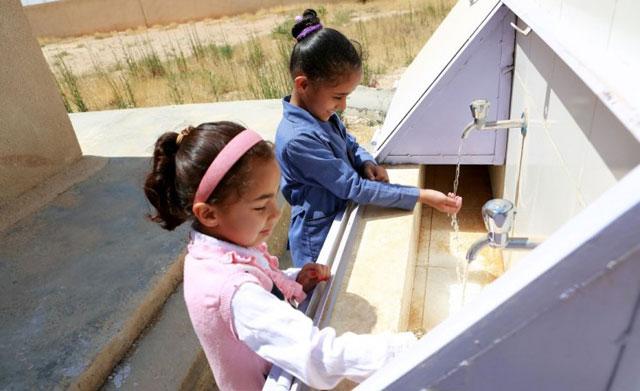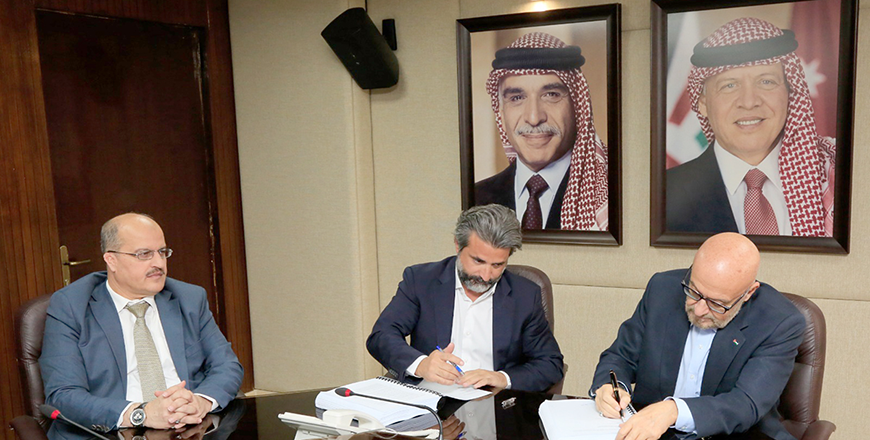You are here
Water Ministry launches first phase of Aqaba-Amman water conveyance national project
By Hana Namrouqa - Feb 26,2020 - Last updated at Feb 27,2020

The Aqaba-Amman Water Desalination and Conveyance National Project will provide a sustainable water resource 'for future generations in all parts of the Kingdom', according to the Water Ministry (Photo courtesy of USAID website)
AMMAN — The Ministry of Water and Irrigation on Wednesday announced the launch of the Aqaba-Amman Water Desalination and Conveyance National Project (AAWDC), describing it as “the largest water generation scheme to be implemented in the history of the Kingdom”.
The ministry announced the launch of the first phase of the project, which will annually generate 130 million cubic metres (mcm) of water once completed, while the project’s maximum capacity is designed to reach 350mcm annually once construction ends, according to a statement e-mailed to The Jordan Times.
The project will be implemented on a build-operate-transfer basis, Minister of Water and Irrigation Raed Abul Saud said during his announcement of the launch of the project’s first phase, which came during a consultation workshop organised by the USAID to draw up a detailed timeframe and an action plan for the bidding process phase, according to the statement.
The project will provide a sustainable water resource “for future generations in all parts of the Kingdom”, the statement said, noting that the strategic scheme is part of the Kingdom’s efforts to adapt to climate change, dwindling water resources and population growth.
Abul Saud highlighted in the statement that the project will be implemented in partnership with the private sector and will consist of seawater conveyance system, a desalination facility in Aqaba and a fresh water conveyance system.
The minister added that the water generated during the first phase will be mixed with underground water from Wadi Rum basin to produce fresh potable water that adheres to “top [drinking water] criteria”.
Implementation of the AAWDC will also include expanding the Kherbat Samra purification station after receiving the proper technical and financial proposals. The expansion will increase the station's capacity from 365,000 cubic metres per day to 468,000 cubic metres per day, the statement highlighted.
The minister also revealed that a number of agreements, valued at $120 million, have been signed with the European Bank for Reconstruction and Development to implement a series of projects in the waste management sector.
Preparations are ongoing to produce tender documents for a sewage water purification station in Ghabawi area at a capacity of 22,500 cubic metres daily, as well as to expand Ain Ghazal station to increase its capacity to 660,000 cubic metres per day, Abul Saud announced.
He noted that discussions are ongoing with donors to sign the funding agreement by May of this year and begin implementation immediately.
In regards to the non-revenue water (NRW) project, a project to minimise water waste in the Kingdom, Abul Saud said that the tender floating process was completed, noting that a local offer was made at a cost 10 times greater than the expected amount due to "the private sector's lack of experience in this field".
Related Articles
AMMAN — The Ministry of Water and Irrigation has implemented desalination projects worth JD40 million which have generated 3,500 cubic metre
AMMAN — The Aqaba-Amman Water Desalination and Conveyance Project, also known as the National Carrier Project, is advancing according to pla
AMMAN — Minister of Water and Irrigation Raed Abul Saud announced on Wednesday the signing of an early works agreement with Director General


















